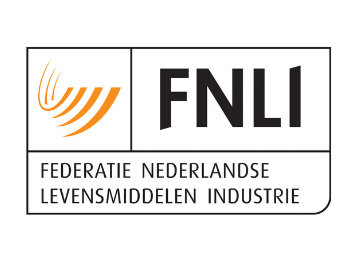Reformulation of food (and drink) has been a part of the policy to improve the nutrition status of the population by the Dutch government ever since the Dutch Health Council published its second version of Dietary Guidelines in 2006 (the first dated from 1986). These Guidelines contained a call to businesses to improve on product composition regarding (macro)nutrients and energy density with a strong focus on sodium (salt) levels in foods. In the Policy Document on healthy nutrition by the Dutch Ministry of Health in 2008 this call for salt reduction was converted into official policy for the first time, but in the years after this publication the importance of reformulation as a part of preventive strategies has grown significantly. Not only with regard to salt, the number of nutrients covered was also extended.
FNLI responded at first by unilaterally launching a Task Force Salt Reduction in which individual companies as well as National Trade Associations representing various food and drink sectors which came up with a plan. It was soon realised that achieving the goals set was difficult to achieve without working together with the brand owners of Private Label products, mostly the big retailers (supermarkets). Following this the FNLI reached out to CBL and a joint, bilateral, task force was instigated during which commitments for the canned and bottled vegetables sector were set up. Simultaneously, the government set up a platform of Stakeholders to exchange information about activities to reformulate products.
In 2013 the government proposed a scheme to ensure more systematic action on product reformulation which took approximately a year to negotiate.
Agreement on Food Product Reformulation – a look back
In January 2014 the Dutch Food & Drink Federation (FNLI) signed an Agreement on Food Product Reformulation (AFPR), together with the Dutch Supermarkets and Wholesalers Association CBL, the Dutch Caterers Association Veneca and the Bar and Restaurant Sector organisation KHN. The Dutch Minister of Public Health had taken the initiative to set up the Agreement and she personally had also signed this Agreement.
The Agreement formally ended on the 31st of December 2020, although there are still some commitments for reductions in Calories and/or Salt in place that will end at a later stage. During the Agreement 30 commitments were established for 23 product categories, which were mostly undersigned by both FNLI and CBL members. Some of those were additional commitments after realising a former commitment, while others didn’t come into place until another Agreement – the Agreement on Preventive Action – was signed.
Product (categories) concerned were:
- Canned and Bottled Vegetables (salt and sugar)
- Legumes (salt and sugar)
- Apple Sauce (sugar)
- Cold cuts (salt and saturated fat)
- Fresh meat preparations (salt and saturated fat)
- Meat preserves (salt and saturated fat)
- Soups and Stock (salt)
- Sauces (salt and sugar)
- Gouda Cheese (salt)
- Dairy drinks and desserts (sugar)
- Savoury snacks like crisps (salt)
- Hot savoury snacks like croquettes, meat-balls, etc. (salt)
- Cheese Spreads (salt)
- Breakfast cereals (salt and sugar)
- Ready-to-eat meals (Dutch, Italian and Eastern – salt and saturated fat)
- Ice cream (Calories)
- Salads for use as toppings on bread and toast (salt and sugar)
- Soft drinks (Calories)
- Cakes based on margarine (saturated fats)
- Bread (salt)
- Sausage and other savoury rolls (salt)
- Jam (sugar)
- Meat replacing products (salt)
National Agreement on Preventive Action 2018
The National Agreement on Preventive Action (NAPA), in which the Food and Drink Industry would also participate, was an initiative originally launched by the Dutch version of Business Europe. The idea was to set up an Agreement between the government, various representatives of business as well as Public Health Agencies, and NGO’s to cover as broad a spectrum of society as a whole to ensure a widely supported general Movement in the populace which would focus on Prevention. The initiative was taken up by the Dutch government (a new government after elections) which took the lead in bringing it into existence. Three aspects of public health were tackled: tobacco use, problematic consumption of alcohol as well as overweight/obesity. FNLI was part and parcel of the original initiative and took part in the negotiations about preventing overweight and obesity. FNLI focussed mostly on reformulation issues, although marketing to children was also part of the negotiations.
It was agreed that the NAPA would contain additional commitments, one by the soft drinks sector (a much higher reduction rate than originally was agreed upon in the AFPR) and one by the dairy sector (a second step in sugar reduction on top of the one already agreed upon earlier) as well as a new commitment by the confectionery, chocolate, biscuits and cakes sector regarding portion sizes and portion information. Furthermore it was agreed FNLI would stimulate more as well as more ambitious commitments with regard to the remaining two years of the AFPR. Finally, FNLI signed up to support the setting up of a new system to stimulate product reformulation as well as supporting the introduction of a new logo stimulating the healthy choice.




